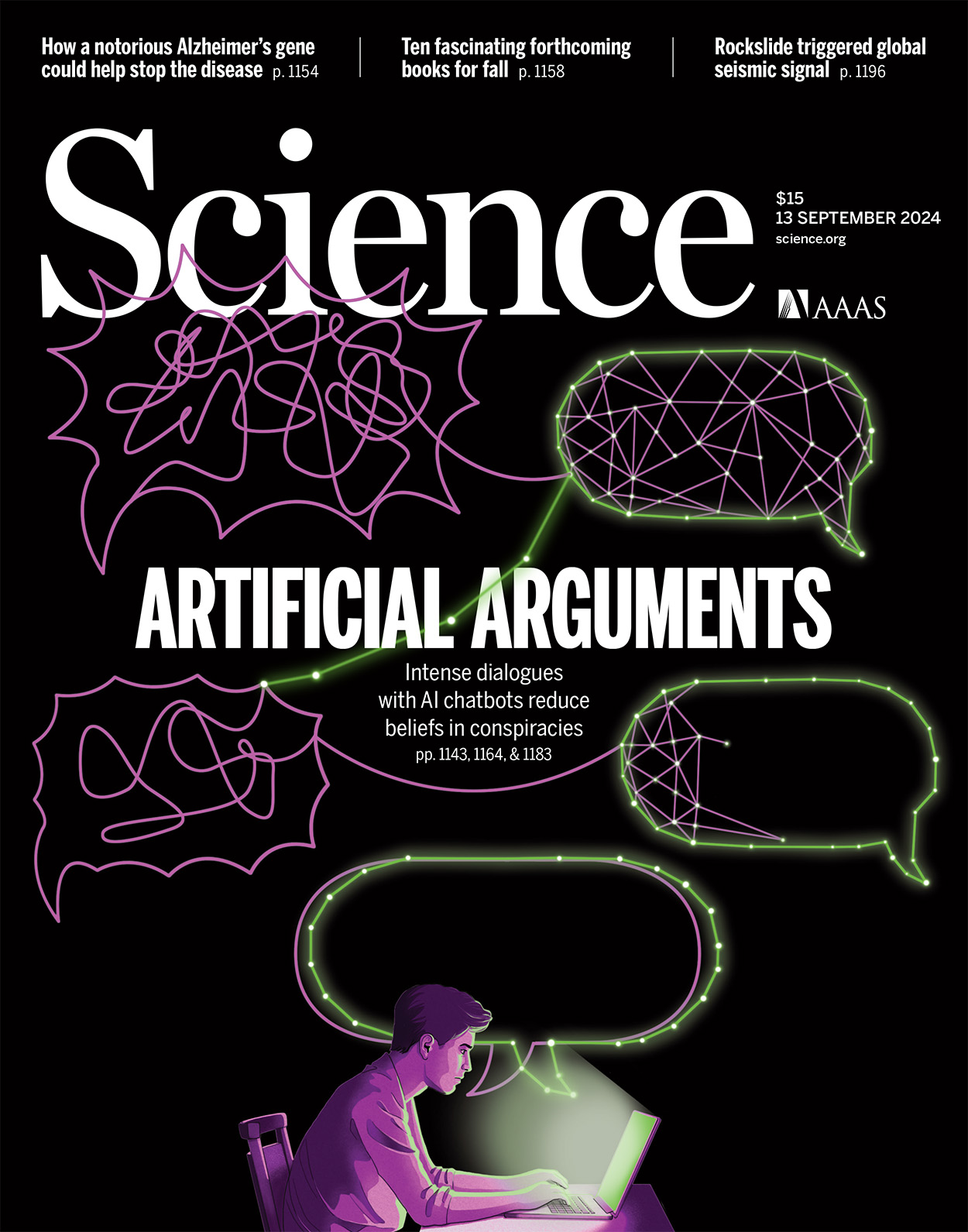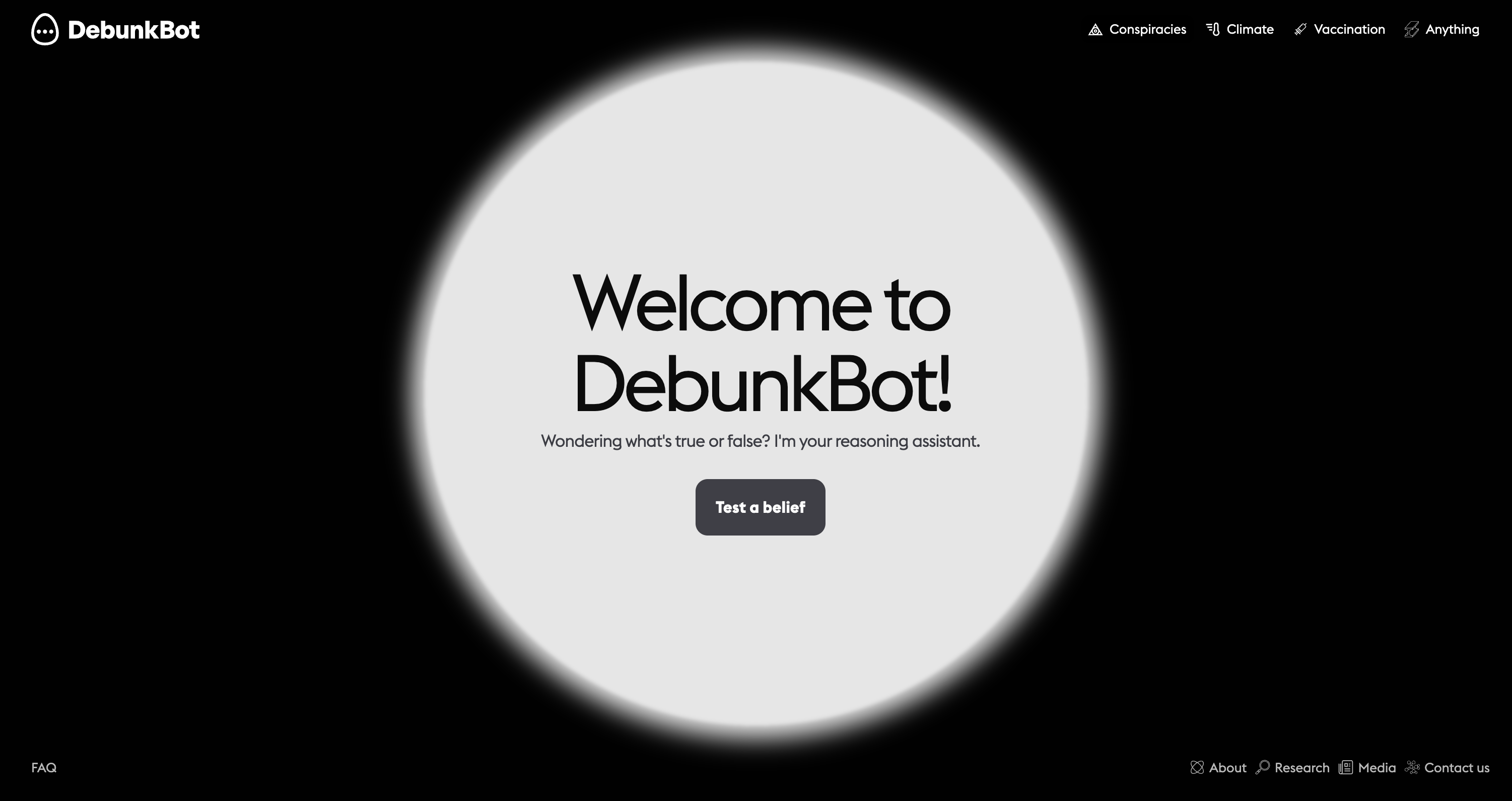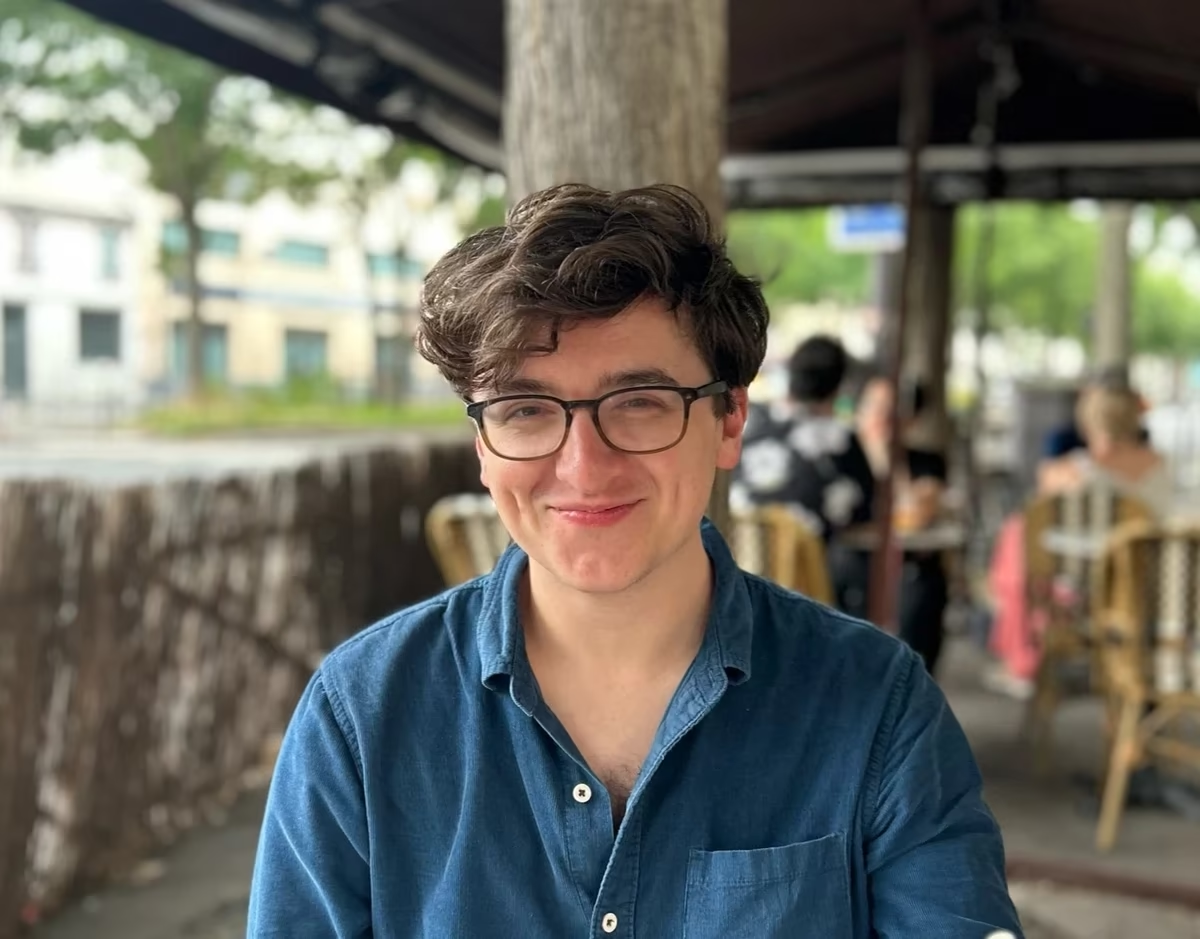 Science · Cover Story
Science · Cover Story
Durably reducing conspiracy beliefs through dialogues with AI
In conversations with over 2,000 conspiracy believers, AI-driven dialogues reduced belief by ~20% on average—effects that persisted for months. One in four participants completely reversed their stance.
Read more
